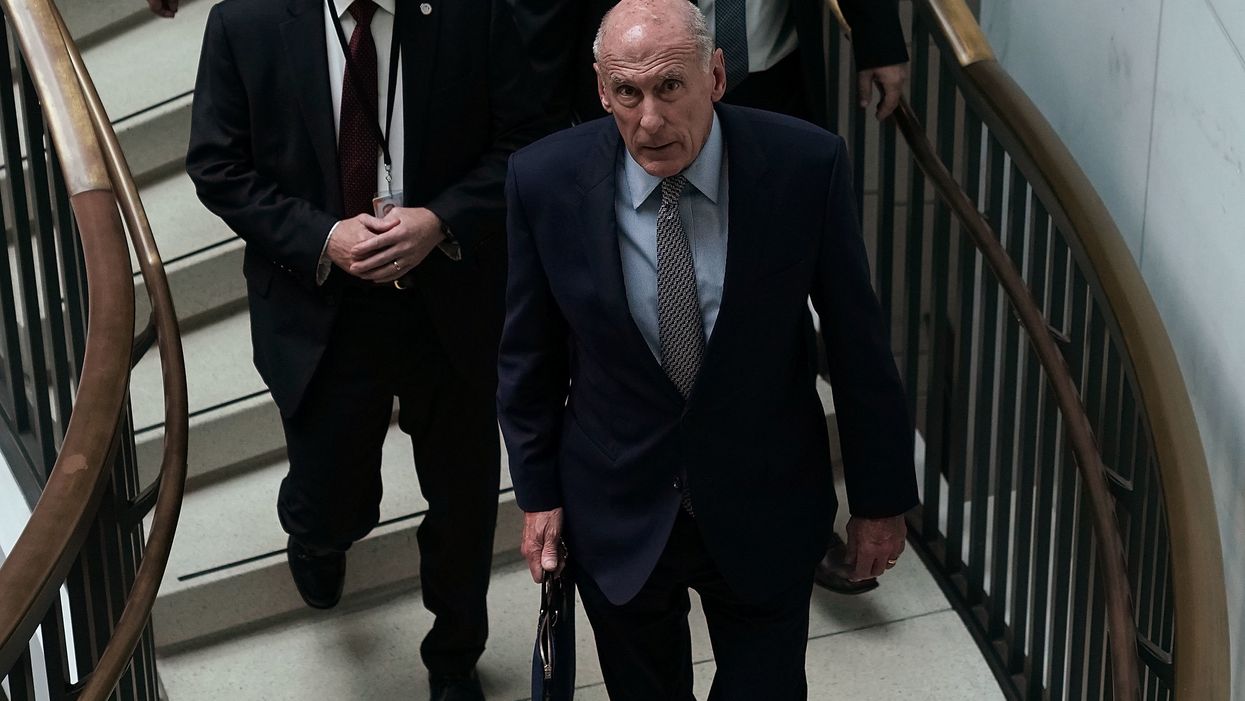Presidential contests may be the ultimate exhibition of polarized partisanship, but efforts are bubbling up in several places to put a bit of smoothing bipartisan spin on this election and its potentially messy aftermath. Two new ones, one bold and one narrow, were unveiled Wednesday.
A group of more than 40 formerly prominent Republicans and Democrats declared themselves the National Council on Election Integrity. The group then announced a $20 million advertising campaign to reassure the country the election will be safe and secure despite the coronavirus pandemic — and hammer at the message that all votes should be tabulated before a winner is declared.
And young members of the Wisconsin Legislature unveiled a modest campaign of their own — underscoring that Republican and Democratic politicians are unified in the view that as many people as possible should vote early in that battleground state.
The same premise is implied by both efforts: The rhythm of this year's election will be unique, with the tabulating of an unprecedented number of absentee ballots highly likely to mean a delay of perhaps days for decisive returns in the closest contests.
President Trump says he doesn't believe he should have to wait because the in-person numbers will be sufficient for him to declare victory the night of Nov. 3. He baselessly claims that subsequent shifts from red to blue in battleground states will be evidence of massive fraud. Former Vice President Joe Biden, aware of polling that shows most Democrats plan to vote by mail and most Republicans in person, is counting on the later returns to move the election his way.
The "Count Every Vote" campaign will start with a $4 million TV and digital ad buy in battleground states — with the bulk of the spending in Michigan, Pennsylvania and Wisconsin. Laws in all three states will delay the start of processing of perhaps millions of mailed ballots until Election Day, even if they arrive earlier.
Moreover, the group of former elected officials and Cabinet members, retired military officials and civic leaders want Congress to form a special commission to referee post-election disputes — something it seems highly unlikely to do.
"The most urgent task American leaders face is to ensure that the election's results are accepted as legitimate. Electoral legitimacy is the essential linchpin of our entire political culture," said Dan Coats, who was director of national intelligence at the start of the Trump administration and before that a longtime Indiana senator.
"This election is about more than who's on the ballot," added former Senate Democratic leader Tom Daschle. "The integrity of our democratic system is at stake."
Others in the group — including 17 Republicans and 16 Democrats who held elected or Senate-confirmed office — include former Secretary of State Madeleine Albright, former Secretary of Homeland Security Michael Chertoff, former Senate GOP leader Bill Frist and former House Democratic leader Dick Gephardt. (The panel was assembled by the democracy reform group Issue One, which owns but is journalistically independent of The Fulcrum.)
The Wisconsin effort was organized by the Millennial Action Project, a nonprofit that works to incubate a younger generation of pragmatic politicians committed to bipartisan collaboration.
The message of the lawmaker' video is that voting as soon as possible, either by mail or in person, can be both safe and secure — and assures results in a state with potentially crucial 10 electoral votes may be known sooner. "In conversations with leaders from across the political spectrum — young legislators, former and current attorneys general, entrepreneurs and community members — Wisconsinites agreed: conducting free and fair elections is not a partisan issue," their announcement said.
Vote Safe, Wisconsinwww.youtube.com




















Trump & Hegseth gave Mark Kelly a huge 2028 gift